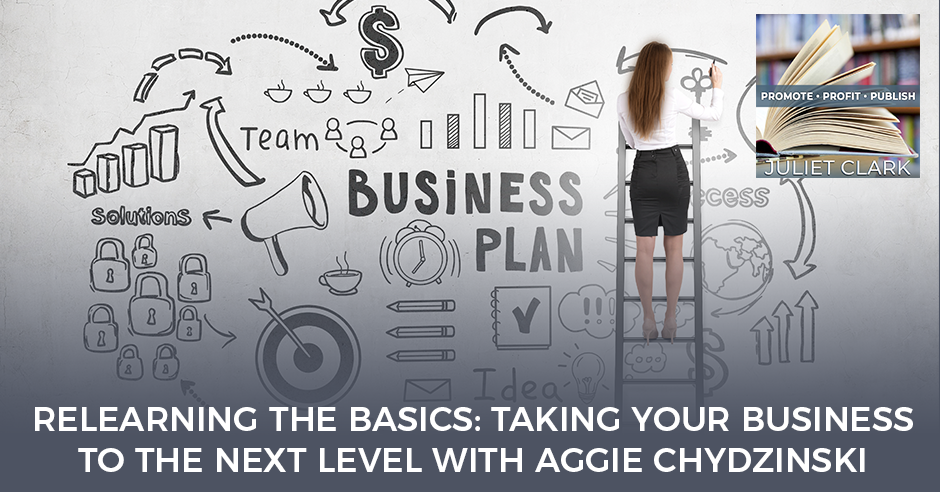
Entrepreneurs often neglect business basics to their detriment. Having the basics down, such as planning, marketing, and financials, means being ready for anything. In this episode, Juliet Clark discusses entrepreneurship with Aggie Chydzinski, Business Advisor at Cultivate Advisors. Aggie shares insights on how to grow and scale a business and why you need to pay attention to the basics. Tune in and learn more about growing your business from Aggie.
—
Watch the episode here
Listen to the podcast here
Relearning The Basics: Taking Your Business To The Next Level With Aggie Chydzinski
In this episode, we’re going to talk business. We’re getting to the end of 2021 and into 2022. For a lot of you, you’re revamping plans. You’re looking at what you’re doing. You’ll be excited about our guest and just thinking about how you’re going to grow in 2022. Before we get started in my introducer, I want you to run over to @SuperbrandPublishing on YouTube and follow us over there. You can see every one of these shows. You can see the videos.
Don’t forget to go over and take the Promote Profit Publish Quiz. You can find it at www.PromoteProfitPublishQuiz.com. You are going to find out if you’re ready to publish because you can write a book, but who’s going to read it and where’s it going to be distributed? How are you going to get all this done? This is something you should have been planning from day one. It’s time to get over there and start planning.
Our guest is Aggie Chydzinski. Aggie is an entrepreneur and a strategic change leader with many years of experience in growing businesses. Over the course of her career, she has successfully worked with over 200 companies undergoing restructuring, accelerated business development, process improvement, change management and operational transformation initiatives. She’s passionate about value-based leadership, funding, equality for women-owned businesses and women’s empowerment. Welcome, Aggie.
Thank you for having me.
I’m excited. 2022 is coming up. After this interview, I’m meeting with my coach to put together a marketing plan, growth business strategy, but I know a lot of my readers and clients out there, they’re not starting yet, or they’re not thinking about it in terms of, “How do I grow this business in a meaningful way?” Tell us a little bit about how you got started and where you ended up, because you’re one of those people who have hands-on experience with what you teach.
I started my career running one of the top technology incubators in the country at the University of South Carolina. I developed my passion for entrepreneurship early on. I had businesses growing up, buying and selling goods mostly to my friends as starting because my parents, even though we were comfortable, always pushed me to, “If you want more, you need to make sure you get more by yourself. We’re not going to give you any more than what we deem you need.” Therefore, if I wanted a new pair of shoes, a new jacket or anything like that, I needed to go and figure out how to make my own money. Many times, that was me either making things or me buying things and then selling them at a higher price.
You fail not because you’re not good at something. It’s because you don’t have the foundational processes for your business to be successful.
Buying and selling, I did a lot of early on. I also owned a janitorial company that was a necessity, became the mother of invention. I was working by a building that was the owners constantly complained that they were getting bad service and cleaning. I said, “If you receive bad service and cleaning, I will provide that service better and clean better.” My best friend and I started that cleaning service and we did pretty well with it. We exited successfully.
While I was at the incubator, I had a chance to work with over 200 small businesses from their ideation stage meeting. They just came up with a business plan and we’re trying to figure out how to get it done or how to get it to the next step, or people who had just started a business or were 1 to 2 years into their business and needed that extra to get them to the next space.
While I was there, I would help a lot of businesses. My favorite book became The E-Myth. I always come back to that story to where a lot of people start a business because they’re good at something. They’re very skilled and have the passion, but what they’re lacking is the business acumen. I go back to the story of the pie maker.
She opens a pie-making business, and she thinks that the only thing she needs to do is make pies. She’s going to wait for people to come to her. As a business owner, you can make the best pie in the world, but it goes back to if a tree falls in the forest, does anybody hear it? It makes noise, but if there’s no one to listen to it, no one is going to hear it.
It’s the same thing for that pie maker. It doesn’t matter how great the pie is. If you don’t market it, you don’t have a plan, you don’t think about your cost of goods, about how much you’re going to sell your pie for and how you are going to get the word out to people to know that you have the best pie in the world and all the admin stuff that goes with owning a business, that’s where people fail. It’s not because you’re not good at something. It’s because you don’t have the foundational processes for your business to be successful. After the incubator, I went to run a woman-owned business that was in the hospitality, food and beverage industry.
I went to run a company that had to do with robotics and manufacturing for large equipment for the laundry industry. I’m a jack of all trades, but what I do know is business from finances to operations, sales and marketing, productivity, recruitment and leadership. Those are my gems. Those areas can be applied to any business. The one thing that people need to understand is, I do not believe that there is one miracle solution for every single business because everybody has a different story and background.

Business Basics: If we aligned the goals in the vision with sales and financials at the business, generally, this is a road to success ahead.
To a certain extent, even though us business generalists can work at being industry agnostic, we still need to look at the values of the person that we work with, how they want to represent the business in the world and what their goals and vision are. If we aligned the goals in the vision with sales and financials at the business, generally, this is a road to success ahead.
I suggested to my son that he get a license for something and start a business. He’s like, “Yeah.” As I got into it, I was like, “You’re going to need an accounting system and a filing system. You don’t keep very good.” By the end of our conversation, he was literally like, “I don’t want to do it.” That’s what all of us get into is, “Do you have an accounting system? Do you have an account or contract?” I know it’s more than that, but when we’re getting into a business, you can’t start it haphazardly.
You and I had a conversation about this in the past, about finding your niche. You cannot be everything to everyone. That’s not sustainable because otherwise, you’re casting a wide net and you’re not focusing. I’m going to make a fish analogy. You’re baiting everybody but you’re not baiting anybody. Every fish has a specific type of bait.
If you’re fishing for sharks, you’re going to attract them with a chum. You’re not going to attract them with a little sardine at the end of your line. That’s what people need to understand. First, they need to figure out who their target market is and who they’re going to sell their product, idea and concept to. The answer cannot be, “Everybody is interested in it,” because it’s not true.
Even me for my business now in helping specifically women entrepreneurs, I chose to only specialize in women business owners because that’s who I want to help. That’s aligned with my vision and passion. It’s not just any woman entrepreneur. I want them to already have a business built out. I want them to be ready to scale, get to the next level and have that vision to where in 5 to 10 years, they want to exit the business and reach financial independence.
For me, I want to see more women in businesses pass that $1 million mark because I feel like because a lot of them don’t have a specific niche and don’t market to that specific niche, they’re successful, but they’re not as successful as they could be because you have to perfect that niche before you expand to another one.
You cannot be everything to everyone. That’s not sustainable because otherwise, you’re casting a wide net, and you’re not focusing.
The reason I was talking to Aggie is one of our clients, a psychiatrist, has been putting out a very general mental health, but her love, and she even wrote a book about it a while back, is perinatal depression, anxiety and helping women through miscarriages. We got that nailed and said, “Focus here,” that’s where she’s starting to build now. The reason I’m saying this is I see this a lot in psychologists and doctors.
They don’t want to be in the office all the time. They’re creating something new. Let’s face it, they’ve got credentials, they know they are experts, but you can’t be an expert at everything. Talk a little bit about what is necessary for the business. You and I had this conversation too, about people get to see the coaching business. They see all these shiny objects, but they don’t have the fundamentals down to get going in a meaningful way.
It’s easy to get distracted. You mentioned planning. That’s why it’s important to make a plan. The plan needs to be aligned with values. What is it that the business owner believes in? What is their why? What do they want to accomplish and where do they see this business going, moving forward? It also has to do with aligning that vision, purpose, mission and those values with everything that they do in the business.
Once that plan is built out to where they know that for example, in 2022, if now they are at an average of $150,000 of revenues a year and they understand the costs that are associated with selling or proposing for their product or idea, developing that idea, also their expenses related to the business and putting all of that on a monthly basis so that they know where they’re going, then once you understand that plan and your financials, that’s when the shiny objects become less significant. You have a foundation to run your business with, so you are not getting, “I’m going to go try this because last month I didn’t get enough sales.”
Instead, you know what your budget is for experimenting and trying new things. You know, “This year, I’ve reserved $15,000 to try new things.” When that shiny object comes up and is faced with you, you can make the decision, “Is it going to fit my budget? How much do I have leftover? Is it worth for me to try?” Always that process of analysis, as long as it matches your values and the core reason why you’re running your business, then it’s a good idea. Try it.
If it doesn’t, if you’re stretching yourself financially to try something that is a high risk, it’s not worth trying now. Plan for it the next time around. My colleague and I teach a lot about value-based leadership. It’s not only about leading a team. It’s also about leading yourself to success and matching those values, what you believe in and what you want your team if you have a team to believe in with you. Engaging them in that process is very helpful because then you have a system of accountability that keeps you grounded and following your goal.
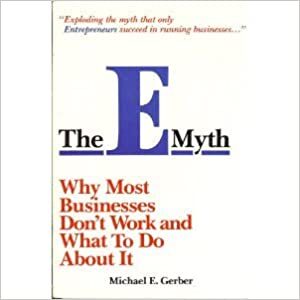
The E Myth: Why Most Businesses Don’t Work and What to Do About It
For new business owners out there, it’s about setting that budget, staying within it and being able to track it accountability-wise too. What are the tools that they have to have to start doing that? You’d be amazed how many people I talk to don’t have a CRM. They don’t have an accounting system. It’s wild. They don’t have a contract system, a proposal system.
I can have a conversation with you about key performance indicators all day long. Anything works, as long as you have it written down somewhere. One of the most important tools that entrepreneurs need is some kind of a financial tracking system, whether they do it on an Excel spreadsheet, QuickBooks Online, Zoho Books, FreshBooks or whatever the solution is that they pick, it needs to be consistent. Billing on the chart of accounts to be not very complicated but actually matches their business.
One of the things that I do with a lot of my clients that do not have an accounting system is going back to the basics and explaining to them what a profit and loss statement is, explaining to them what a balance sheet is and a cashflow statement is because unfortunately, a lot of entrepreneurs get into it, not understanding their financial basics. It’s not just, “Do I have money in my bank account?” That doesn’t count because the money in your bank account is there one day but could not be there the next day.
It’s understanding how you are using that money, where it’s coming from and how it’s exiting your business and planning all of this. You can do it on an Excel spreadsheet if you’re not ready to get an accounting software. What the accounting software does is automate everything, so you don’t have to worry about building the formulas and understanding what your margins are and understanding how your sales grow month over month or decline.
That’s one big tool. CRMs are super inexpensive. That is great for people to understand their sales process. Most importantly, from a marketing standpoint, since marketing and sales are very intertwined, it’s important for them to understand, number one, who their customer is. That ideal customer persona or ideal customer profile. Who are they? Who they’re serving? It could be a customer, a client, a guest, a contributor, a partner or whatever they call them, and then go back and find out what the best ways are to market to them so that they can see the client attraction, retention and attrition over time.
How many more clients do they onboard? How many clients do they keep over time? How many clients do they lose over time? CRM is probably the secondary tool. Everything else is like an added bonus. You could have ERP software. It’s an enterprise resource software that incorporates everything, then you can have a CRM tool, project management tool, an accounting tool, people management tool.
One of the biggest mistakes that entrepreneurs make is they don’t include themselves in the salary pool. You need to pay yourself. You can’t work for free.
All the recommendations are based on conversations. I do a lot of open-ended trigger questions or calibrated questions to get to know them. Those what, why, how, when, where questions that allow them to not answer by yes or no, but develop on the backend, that is important for people to understand why they’re doing this and understand their clients even better to market to them a lot better than they are already doing.
Especially with the CRM because you want to be able to keep track of leads. Many years ago, I was a real estate broker. We always had our leads like we knew where everybody was, who was in the car, who was in contract. I remember people in our office would come in and say, “I had 67 leads.” It’s like, “How many of them are qualified? How can turn your car?”
You do need a system where you can see where people are in the process of a week. We happen to use HoneyBook for that. Who passed the proposal out. Who was in the planning stages? We have a lot of that cover. You do need that sort of thing as you grow. Otherwise, you’re just going to be like, “I don’t know.” As a business owner, you need to know where every single lead is. You need to know your financials daily. You need to know a lot of that stuff.
That’s why it’s always good in the planning process to start with money that comes out in order to build back into money that comes in. What are your operating expenses? How much is the minimum that you need to bring in every single month to cover those? That includes salary. One of the biggest mistakes that entrepreneurs make is that they don’t include themselves in the salary pool, and they need to. You need to pay yourself. You can’t work for free. In some states, it’s illegal to work for free. If you work for a corporate entity, why would you work for free for your business? I get it, on some days, you’ll have to forego your salary.
I’ve had to do it. I’ve had to sacrifice my salary to pay for my people because it’s stuff. Sometimes you are in a dry spell and the pandemic has been one of them for a lot of businesses that weren’t as successful in writing the crisis that we’re in. In the past, you could lose a massive customer or client that you were relying on. One day, you get the email, “I’m sorry, we’re going to need to cancel that contract because we can’t afford it anymore.” What happens then? How do you make up for that money if you’re not proactive? You always have to look ahead. You can’t ever take anything for granted.
The other benefit of having a salary is so many people get lost in the taxes because when you have a salary, you’re paying those taxes upfront. You have a payroll. Hopefully, you don’t get caught at the end of the year with, “I didn’t pay my quarterly.” I remember that used to be a big thing in real estate. People would spend every last dime they made. It’s like, “I owe $50,000 in taxes.” A lot of small businesses run into that because they don’t give themselves a salary and have that payroll.
To be clear, taxes are a measure of success for me. If you have to pay taxes at the end of the year, that means that you were successful. Good for you. Don’t shy away from them. At the same time, there is a way to alleviate the burden by reinvesting in your company and what you’ve made before December 31st and share the bonus full with your employees and tell them how good of a job they did, pay a little bit additional in payroll. There are many ways of doing it. The key is don’t go beyond the legal permissions for that because that’s not right. If you’re successful and you make your profit, a little bit of taxes is okay. It’s part of the planning. You have to plan for those taxes.

Business Basics: If you’re successful and you make your profit, a little bit of taxes is okay. It’s part of the planning. You have to plan for those taxes.
If you plan at the end of the year to be up by $100,000, then plan that level of taxes so that you know how much you will be paying. It’s the difference between EBITDA, which is Earnings Before Interest Taxes Depreciation and Appreciation, and then the net profit at the end. The taxes are going to be factored into the net profit, but not in the EBITDA because it shows the earnings before you pay them.
Where can we find you if a women-owned business is reading and feels like they need some help getting some things in order?
I work for a company called Cultivate Advisors. We are a group of entrepreneurs that have been there, done that. We’ve all grown businesses. We’ve all managed teams and we’re all industry agnostic, which means that even though we have specialties, we can still work across businesses. I joined them because I’m a big collaborator and I love the fact that I get to work with 60 plus entrepreneurs around the United States and share stories.
It enriches that experience for my clients and giving them the opportunity to pull from some of my resources as well. It’s not just me, Aggie. It’s my exceptional team in the background and me. You can find me either by going through CultivateAdvisors.com. You can also find me on LinkedIn, or you can send me an email at Agata@CultivateAdvisors.com.
Thank you so much for being here.
It’s my pleasure. I loved it.
Important Links
- @SuperbrandPublishing – YouTube
- www.PromoteProfitPublishQuiz.com
- Aggie Chydzinski
- The E-Myth
- LinkedIn – Agata Chydzinski
- Agata@CultivateAdvisors.com
About Aggie Chydzinski
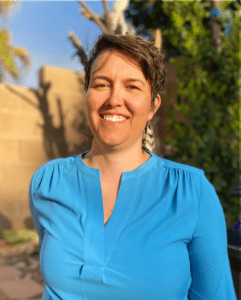 Aggie is an entrepreneur and strategic change leader with over 17 years of experience in growing businesses. Over the course of her career, She has successfully worked with 200+ companies undergoing restructuring, accelerated business development, process improvement, change management, and operational transformation initiatives. She is passionate about value-based leadership, funding equality for women-owned businesses, and women empowerment.
Aggie is an entrepreneur and strategic change leader with over 17 years of experience in growing businesses. Over the course of her career, She has successfully worked with 200+ companies undergoing restructuring, accelerated business development, process improvement, change management, and operational transformation initiatives. She is passionate about value-based leadership, funding equality for women-owned businesses, and women empowerment.
Love the show? Subscribe, rate, review, and share!



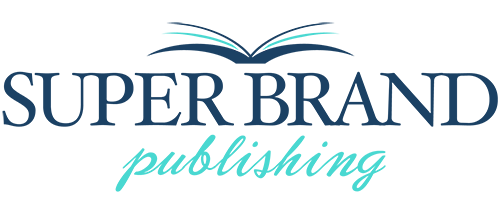


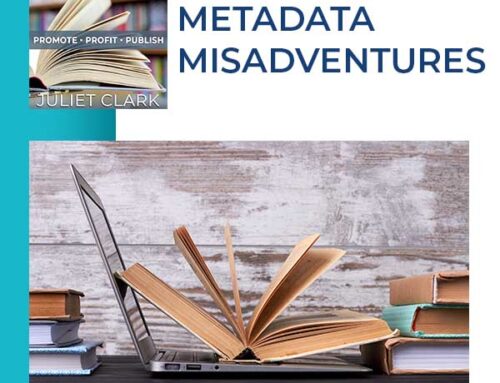



Leave A Comment